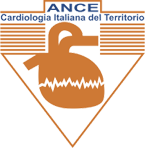Direct oral anticoagulants (DOACs) have been used in clinical practice in the United States for the last 4 to 6 years. Although DOACs may be an attractive alternative to warfarin in many patients, long-term outcomes of use of these medications are unknown. We performed a propensity-matched analysis to report patient important outcomes of death, stroke/transient ischemic attack (TIA), bleeding, major bleeding, and dementia in patients taking a DOAC or warfarin. Patients receiving long-term anticoagulation from June 2010 to December 2014 for thromboembolism prevention with either warfarin or a DOAC were matched 1:1 by index date and propensity score. Multivariable Cox hazard regression was performed to determine the risk of death, stroke/TIA, major bleed, and dementia by the anticoagulant therapy received. A total of 5,254 patients were studied (2,627 per group). Average age was 72.4 ± 10.9 years, and 59.0% were men. Most patients were receiving long-term anticoagulation for AF management (warfarin: 96.5% vs DOAC: 92.7%, p <0.0001). Rivaroxaban (55.3%) was the most commonly used DOAC, followed by apixaban (22.5%) and dabigatran (22.2%). The use of DOACs compared with warfarin was associated with a reduced risk of long-term adverse outcomes: death (p = 0.09), stroke/TIA (p <0.0001), major bleed (p <0.0001), and bleed (p = 0.14). No significant outcome variance was noted in DOAC-type comparison. In the AF multivariable model patients taking DOAC were 43% less likely to develop stroke/TIA/dementia (hazard ratio 0.57 [CI 0.17, 1.97], p = 0.38) than those taking warfarin. Our community-based results suggest better long-term efficacy and safety of DOACs compared with warfarin. DOAC use was associated with a lower risk of cerebral ischemic events and new-onset dementia.
The American Journal of Cardiology
July 15, 2016 Volume 118, Issue 2, Pages 210–214
A cura di Calogero Calcullo
